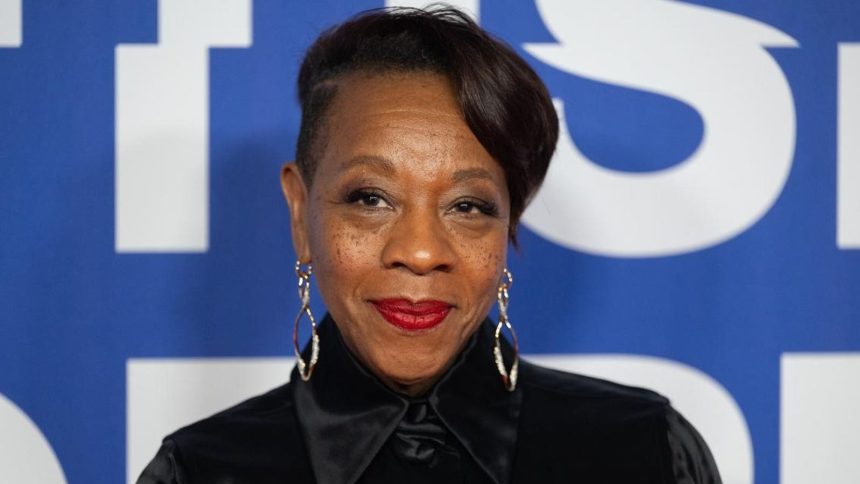The 2025 Golden Globe nominations, announced on Monday, offered a mix of expected outcomes and surprising snubs and triumphs, setting the stage for a potentially volatile awards season. While the French crime musical “Emilia Pérez” dominated with a record-breaking ten nominations, the announcements also highlighted the often unpredictable nature of awards predictions and the diverging tastes of different voting bodies. Several presumed frontrunners in the Oscar race found themselves overlooked, raising questions about their prospects in the upcoming Academy Awards. Conversely, unexpected nominations shone a spotlight on lesser-known films and talent, injecting a fresh element of excitement into the awards season narrative.
One of the most notable snubs involved Marianne Jean-Baptiste, star of the drama “Hard Truths.” Despite strong critical acclaim, including Best Actress awards from both the New York and Los Angeles film critics associations, and a high ranking in awards prediction forums, Jean-Baptiste failed to secure a Golden Globe nomination for Best Drama Actress. Similarly, Danielle Deadwyler, whose performance in “Till” two years prior was widely considered Oscar-worthy, missed out on a Supporting Actress nomination for “The Piano Lesson,” despite being highly ranked in industry predictions. These omissions underscore the inherent subjectivity of awards selections and the difficulty of accurately forecasting outcomes.
In contrast to the snubs, the Golden Globes also delivered several unexpected nominations, particularly in the Best Director category. Coralie Fargeat, director of the horror-comedy “The Substance,” and Payal Kapadia, director of the Indian drama “All We Imagine as Light,” both earned surprise nominations, defying predictions from major outlets. Fargeat’s “The Substance” enjoyed a strong showing overall, with nominations for Demi Moore in the Lead Actress category (as anticipated), Margaret Qualley in the Supporting Actress category (a surprise), and for Best Screenplay. These unexpected recognitions highlight the potential for smaller, independent films to garner attention and recognition on a prestigious platform like the Golden Globes.
Other notable omissions included Denis Villeneuve for his direction of “Dune: Part Two” and Saoirse Ronan, who was eligible for two acting nominations for “Blitz” and “The Outrun.” “Sing Sing,” highly touted earlier in the year, secured only one nomination, for lead actor Colman Domingo, missing out in the Best Picture and Supporting Actor categories. These snubs, coupled with the surprises, paint a picture of a fluid awards landscape where predictions can easily be overturned.
Among the surprises in the acting categories were Pamela Anderson’s first-ever Golden Globe nomination for her role in “The Last Showgirl” and Kate Winslet’s nomination for “Lee.” These nominations, along with the unexpected directorial nods, demonstrate the Golden Globes’ willingness to recognize a diverse range of performances and filmmaking styles, sometimes deviating from established narratives and predictions.
“Emilia Pérez” made history by becoming the most-nominated film ever in the musical/comedy categories, surpassing previous record-holders “Barbie” (2023) and “Cabaret” (1972) with ten total nominations. It also secured the second-highest nomination count in Golden Globes history, trailing only “Nashville” (1975), which garnered eleven nominations in the drama categories. Adding to its groundbreaking achievement, “Emilia Pérez” lead actress Karla Sofía Gascón became the first openly transgender performer to receive an acting nomination in the film categories, marking a significant milestone for representation in the industry.
The Golden Globes, while often considered a precursor to the Oscars, do not always align perfectly with the Academy’s choices. While last year saw a significant overlap, with all major Oscar acting winners and Best Picture/Director also winning Golden Globes, there have been notable divergences in other years. The difference in voting bodies – a smaller group of international journalists for the Globes versus a larger, industry-specific membership for the Oscars – contributes to these variations. The Golden Globes, therefore, serve as an important, but not definitive, indicator of potential Oscar success. With the Critics Choice Awards, Screen Actors Guild Awards, and British Academy Film Awards nominations still to come, the path to the Oscars remains open, and the eventual winners remain to be seen. The Golden Globes have undoubtedly sparked conversation and added intrigue to the unfolding narrative of the 2025 awards season.



